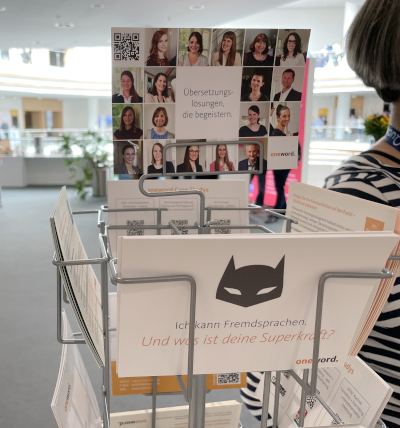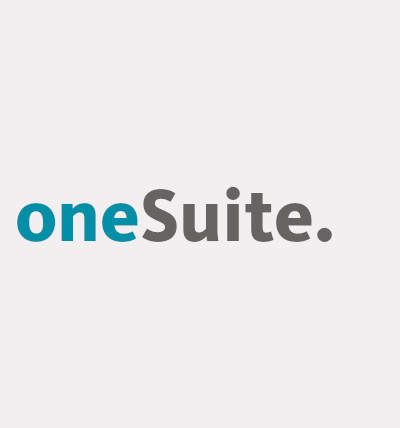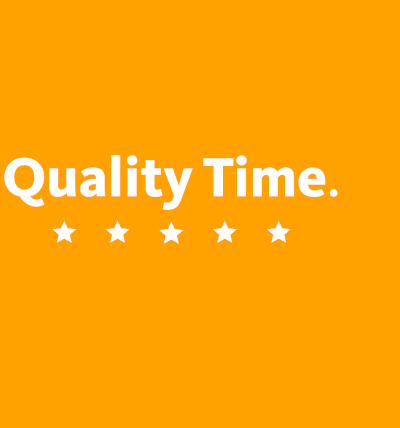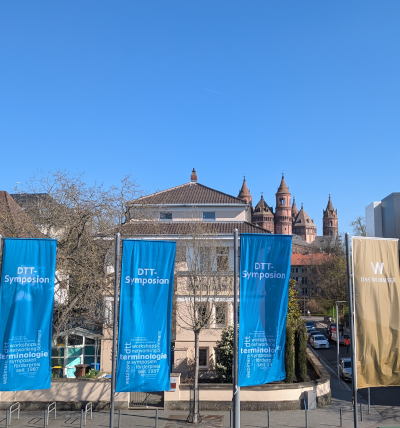
oneNews. Stay up to date with the latest news from oneword
On our blog you’ll find a round-up of the latest news from us, trends and topics in the translation industry, information about upcoming industry events, talks, training and conferences you shouldn’t miss, and other interesting information about languages and multilingual communication. Feel free to have a browse!
To make sure you never miss a news update, you can also receive onenews by e-mail.
From data chaos to vocabulary: maintaining translation memories
Translation memories can grow quickly and become confusing. At the same time, they are a true treasure that can save on translation costs, ensure consistency and train AI systems. This makes it all the more crucial that translation memory data is regularly checked, cleaned up and maintained, so that not only are potential savings identified, but your language data is also suitable for use with AI.
Five warning signs of inefficient translation management
Increasing volumes, new sales markets or additional process steps rapidly stretch established structures in translation management to their limits. At oneword, we are all too familiar with situations where developed structures fail and customers are left seeking support. In this article, you will learn how to detect issues in your translation management at an early stage and how long-term collaboration with a professional translation service provider maximises your resources.
AI in translation: why human expertise remains indispensable – Interview with oneword director Andrea Modersohn
Few technologies have changed the translation industry as fundamentally in recent years as artificial intelligence. oneword has been working with AI systems for over eight years – a period of intensive innovation and associated experience. One insight has clearly emerged from this: AI can speed up processes enormously, but excellent quality can only be achieved in conjunction with the expertise of experienced translators. In an interview with Sara Cantaro, Head of Marketing Management, oneword director Andrea Modersohn explains exactly how companies utilise this added value – and what leading role oneword plays in this.
Faulty AI translations: how to deal with quality defects
DeepL or ChatGPT promise fast translations at the touch of a button – but what if the result is disappointing? Many companies are facing precisely this challenge: although the translation by artificial intelligence sounds fluent, a closer look reveals errors in the technical terminology and inaccuracies in the content. We explain how to deal with faulty AI translations and when professional translation processes are essential.
Well thought-out review processes: how sustainable translation succeeds
Your marketing brochure has been translated into five languages and now it's time for it to be checked in your company's international branches. France has sent three annotated PDF files, the USA has sent a list of all requested changes by email and the Chinese colleagues want to delete two pages and add another text block instead. As a result, important terminology is quickly lost and corrections are made inconsistently or even contradict each other. With several process participants, you also lose track of which version is the current one and whether further corrections are to be expected. Last but not least, a great deal of effort is required to incorporate all corrections into the document and the translation memory. What was planned as an efficient review process often turns into an organisational nightmare. There are technical solutions to support the process, make corrections sustainable and integrate everyone involved in the best possible way.
Assessing quality: automated MT evaluation in practice
The use of machine translation has long been established in many companies, but there is often no routine for evaluating quality. It's worthwhile not only to carry out an initial quality check when choosing a machine translation system, but also to monitor quality continuously to enable you to detect quality changes at an early stage. However, human review of large volumes of machine-translated content in various target languages is neither economically viable nor feasible for most companies in terms of human resources. This is where machine metrics for the automated evaluation of MT systems can help. We explain how they work, what they can do and why humans are still indispensable in the process.
AI translation needs expertise: how translators ensure quality today
Professional translation is in a state of flux. Machine translation and AI are changing the requirements. For companies that rely on professional translation, this poses the question: what role do translators play in this new world? The answer may come as a surprise: their importance is growing – only the tasks they do are changing fundamentally.
Terminology database: from uncontrolled growth to valuable resource in five steps
A well-maintained terminology database is the foundation for consistent and cost-efficient corporate communication. But in practice, it's often a different story: databases that have grown over the years, merged lists from different departments and inconsistent or missing standards lead to a proliferation of data that is difficult to utilise. Therefore, cleaning up these databases systematically pays off directly in terms of time and cost savings in text creation, translation and communication.
Creating glossaries for MT and AI: why less is sometimes more
Anyone who uses machine translation (MT) or AI systems for translation is familiar with this problem: AI sometimes translates "Bolzen" as "bolt", sometimes as "stud" – depending on the day of the week. This results in a lot of post-editing being required, which quickly eats up the cost savings of AI. Glossaries have proven to be a tried-and-tested tool for minimising these errors. In our projects, we have reduced terminology corrections by more than half by integrating a glossary. This may lead people to assume that the more terminology you specify, the greater the benefit, but that is not true. An overcrowded glossary may even lead to more errors. The sheer volume overwhelms the system and, in the end, individual terms overshadow the desired end result. As is so often the case, the familiar principle also applies to glossaries: less is sometimes more.
A look back at Quanos Connect 2025
Quanos Connect 2025 once again proved why it is one of the most important industry events for technical documentation. True to the proven motto "Connections matter", around 800 participants and 29 exhibitors gathered to exchange ideas. There were 100 more participants than in the previous year, an impressive achievement for the conference. As a translation service provider and certified Quanos partner for the translation of SCHEMA ST4 content, we had our own stand at the event for the sixth time. We were able to make numerous valuable contacts and gain exciting insights into the latest developments.
Use AI translation correctly: five steps to measurable savings
Many companies are already relying on machine or AI-generated translation solutions to speed up processes and reduce costs. In practice, however, the savings are often not as large as expected. Just because AI is being used does not mean that optimal results or significant cost reductions are guaranteed. Realising the full potential requires a well thought-out strategy, targeted adjustments at various points in the translation process and human interventions in exactly the right places. With our five-step plan, we show you how you can sustainably and noticeably reduce your translation costs with AI support, without compromising on quality.
What is oneSuite?
We have been using our proprietary browser-based language technology platform oneSuite for some time now. It is a kind of digital Swiss army knife with logically related components for professional use. In this post, we introduce it and explain its advantages over traditional systems and services.
Quality time with Dr Christopher Kurz: ISO 5060 as a toolbox for objective translation evaluation
It's Quality Time again. In a new episode of our series of interviews with experts, Eva-Maria Tillmann, Head of Quality Management at oneword, spoke to Dr Christopher Kurz, Head of Translation Management at ENERCON. In this interview, Dr Kurz talks about his remarkable journey to becoming the project manager of ISO 5060 for the evaluation of translations. An interesting discussion about standards in daily practice, and the concrete benefits for clients even as AI applications become more popular.
Terminology and AI – a look back at the DTT Symposium 2025
Every two years, the German Terminology Association (DTT) organises a two-and-a-half-day symposium to highlight developments, research and trends in the terminology sector. This year the conference was held for the first time in Worms, where the terminology community came together from 27 to 29 March. The conference's tagline was 'Terminology in AI – AI in terminology'. As a DTT member, oneword has been taking part in the symposium for many years. This year, our Head of Terminology Management and MTPE Jasmin Nesbigall was invited to speak for the second time to familiarise participants with creating glossaries for MT and AI. We look back on a successful symposium with many exciting ideas and the 'human at the core'.
Cleaning up language data for AI: the vital ingredient in making chatbots and AI applications successful
AI can save a lot of money in text production, customer service and translation. To make these efficiency promises a reality, the AI has to know the company and also have a precise understanding of the subject area and correct language use. Otherwise, errors and misunderstandings will quickly cancel out the time savings you hoped to make. Therefore, the data used to train AI systems and chatbots is crucial: it must be clean, structured and correct in order to deliver successful results. If you want to make long-term productivity gains using AI, having a solid, cleaned-up database is essential.
The future of AI in translation: MTPE and LLMs in the spotlight
The rapid change brought about by the integration of artificial intelligence is affecting almost all industries and is also revolutionising the translation industry. The industry is used to drastic changes, as the breakthrough of neural machine translation (MT) caused disruption just a few years ago. Since then, MTPE – the combination of MT and post-editing (PE) – has established itself as a method for bringing machine translations to a professional level. The emergence of Generative Artificial Intelligence (GenAI) in the form of Large Language Models (LLMs) such as GPT, Mistral and Llama again begs the question of whether and how translation processes will continue to evolve and change.
Machinery Regulation 2027: efficient translation solutions for the upcoming requirements in technical editing
The EU Machinery Regulation 2023/1230 comes into force in 2027 and will present European companies with new challenges. Particularly in the area of technical editing, the workload increases considerably – and with it the costs for translation into other languages. Many companies are pinning their hopes on artificial intelligence (AI) and machine translation (MT) to cope with the additional workload. However, this approach involves risks, especially for sensitive technical documentation. We show how companies can make massive cost savings with existing translation technologies, and where the use of AI translation offers real added value.
Time for a data clean-up: spring-cleaning your database
For companies with a high volume of translations, language data is worth its weight in gold. For years, translation memories were filled and terminology databases built up – always with the aim of reducing translation costs, ensuring consistency and saving time. However, in many companies what began as a strategic investment has developed into an unmanageable mountain of data. The hoarding of language data is increasingly leading to the opposite of what was originally intended: rising costs, inefficient processes and even a loss of translation quality. So it's high time for a digital spring clean.
Cost versus quality? The savings that machine translation really makes
Would you choose a freshly prepared tiramisu from a chef, a decent dessert from the café or a cheap option in plastic packaging? The choice depends on budget, quality requirements and the time available – and the same applies when translating technical documentation. Here, too, you have three options: human translation, machine translation (MT) with post-editing (MTPE) or pure MT. While the cost savings are tempting, they also bring risks.
Quality Time with Tom Winter: Discussion with the DTT Chair about terminology, AI and quality
It's Quality Time again. Welcome to a new episode in our series of interviews with experts about language services. This time, our Head of Terminology Management Jasmin Nesbigall met with Tom Winter, First Chair of Deutscher Terminologie-Tag e. V. (German Terminology Association, DTT). It was an interesting discussion about the importance of terminology in companies and the role of DTT.
Save on translation costs with translation memories
Almost regardless of the economic situation, making savings on translations is a topic that comes up time and again. The translation industry is under cost pressure because companies want to minimise their costs associated with multilingualism. Many make do with machine translation or enter new territory using large language models, ignoring quality in the process. You do not always have to use new technologies to save money. We show you the potential savings that can be achieved with translation memories, a well-established translation tool, how their use can be supported effectively and why high value should be placed on the language data they generate.
8 good reasons to choose oneword.
Learn more about what we do and what sets us apart from traditional translation agencies.
We explain 8 good reasons and more to choose oneword for a successful partnership.




















